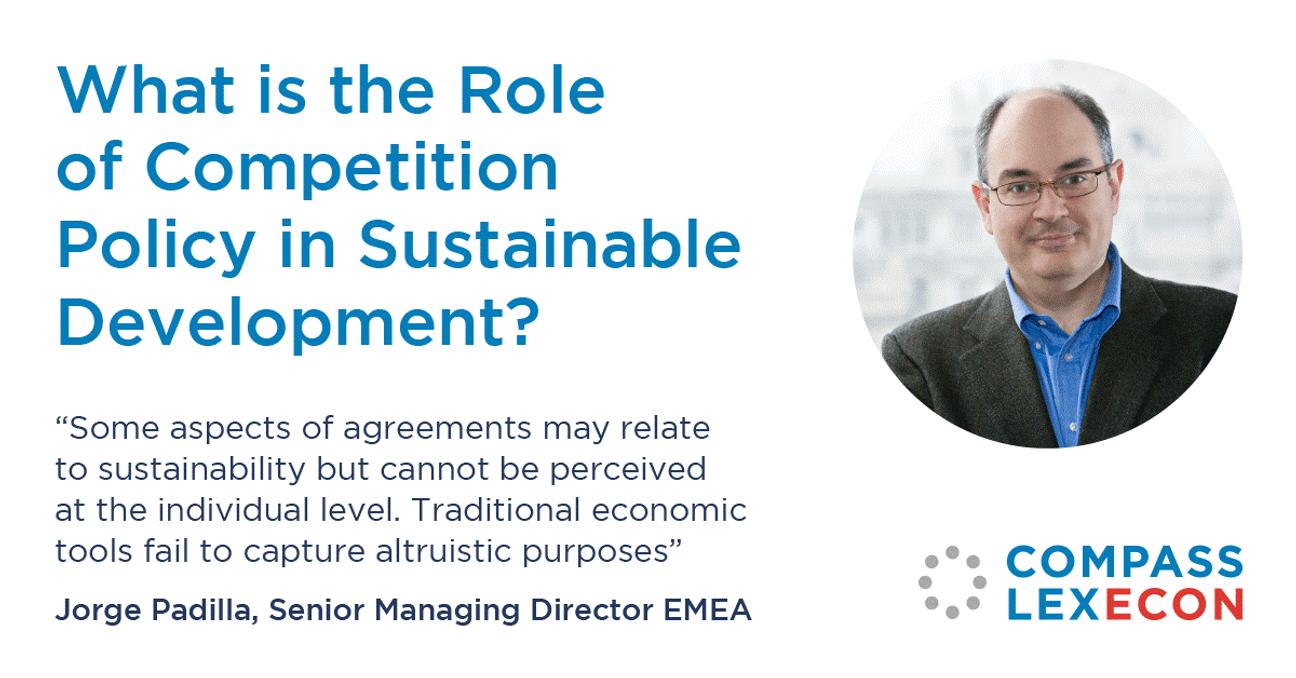Webinar Synopsis: What is the Role of Competition Policy in Sustainable Development?

Share
Economics expert Jorge Padilla participated in a panel with speakers from the UK Competition Appeal Tribunal, the French Competition Authority, and Unilever at the 11th New Frontiers in Antitrust virtual conference, hosted by Concurrences on 6 November.
Expert economist Jorge Padilla explained that increasing production benefits consumer surplus, just like lowering prices. However, some elements of consumer surplus, like willingness to pay, depend on subjective factors. Individual satisfaction may not be related to the actual impact of a product, as is the case for cigarettes. Agreements that increase prices, lower quality or lower production are usually perceived negatively because they reduce consumer surplus. However, other aspects of these agreements may relate to sustainability and could not be perceived at an individual level. Traditional economic tools fail to capture altruistic purposes. Assessing the impact of an agreement on factors that do not relate to individual consumers or that relate to a future consumer is more difficult. Competition authorities will face challenges and they will have to perform cross-generational cost-effect analysis.
When we face a restrictive agreement, the harm is usually presumed. However, consumers negatively affected by the restriction of competition may benefit from sustainability efficiencies to some extent. Likewise, consumers may suffer from unsustainable products. In that case, how do we account for their subjective perceptions? One may simply not be informed, another may refuse objective facts about climate change, and another may simply enjoy the negative effects of his or her consumption decisions. Should we respect his or her preferences, or do we need to adopt a paternalistic approach? In any case, competition policy is just one of many instruments to fight climate change. A single tool is not appropriate to solve that many problems. Regulation and taxation may be more relevant and competition law can be used in a subsidiary way.
Read the event synopsis
Watch the webinar recording:


